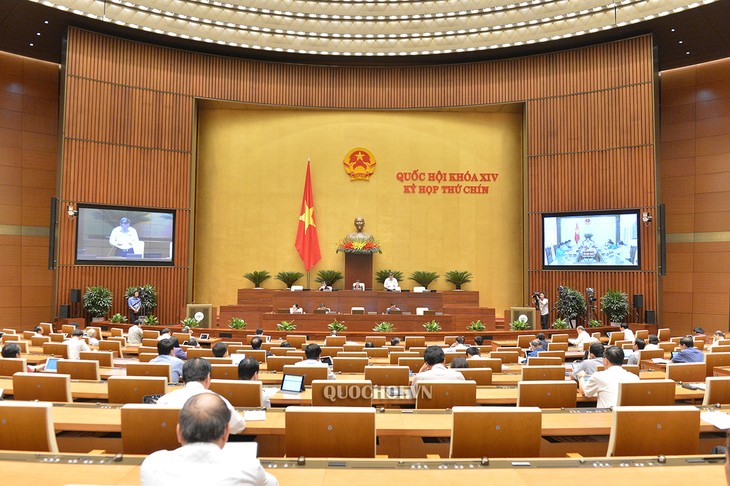(VOVWORLD) - The National Assembly on Wednesday passed a resolution on extending the exemption of agricultural land use from taxes by 2025. The resolution institutionalizes Party and State guidelines on issues relating to agriculture, farmers, and rural areas and encourages individuals and organizations to invest in agriculture to improve the global competitiveness of Vietnamese agricultural products.
 The 9th session of the 14th National Assembly The 9th session of the 14th National Assembly |
Tax exemptions or reductions for agricultural land use have been in place since 2001 in line with the government’s poverty reduction and agricultural production policies.
Important financial resources
Tax exemptions and reductions for agricultural land use have been an important part of Party and State guidelines for agriculture, farmers, and rural areas in certain period.
The average annual total of tax exemptions and reductions was 140 million USD per year from 2003 to 2020, 270 million USD per year from 2011 to 2016, and about 320 million USD per year by 2020.
Mai Sy Dien, a National Assembly deputy for Thanh Hoa, said: “The agricultural incentive policy and financial resources have supported both organizations and individuals. Farmers are happy to benefit from this policy. It has encouraged investment in agriculture and created more effective agricultural production models.”
Business plays a key role in promoting commercial agricultural production and improving the competitiveness of Vietnamese farm products. Tax exemption and reduction supports the goals of having 80,000 to 100,000 agricultural businesses by 2030 and raising agro-forestry and aquaculture production 3% annually. Pham Dinh Thi, Director of the Department of Tax Policy of the Ministry of Finance, said: “Tax exemption and reduction can be seen as state investment in agriculture and rural areas. It allows reinvestment in safe, sustainable agriculture.”
Increased the competitiveness of Vietnamese agricultural products
In recent years Vietnam has signed and implemented a number of free trade agreements, including the Comprehensive and Progressive Agreement for Trans-Pacific Partnership and the EU-Vietnam Free Trade Agreement. A global trend toward trade protectionism and the imminent challenges to agriculture including climate change, diseases, and market fluctuations have forced Vietnamese agriculture to adopt sustainable mass production and pursue higher efficiency, quality, and competitiveness.
Tax exemption and reduction for agricultural land use is in line with Vietnam’s international commitments and provides momentum to modernize the national agriculture.